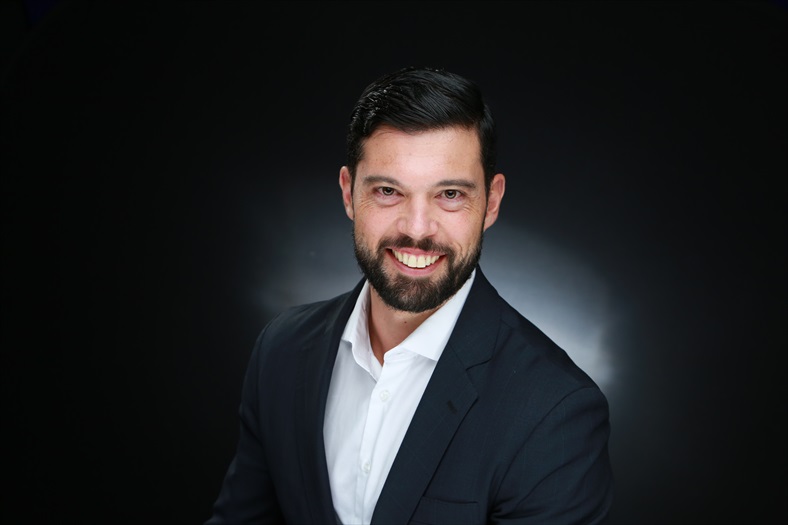IBM Brazil focuses on startups to accelerate innovation at incumbent firms

Esta notícia também está disponível em português
Supported by an investment of $1 billion to boost its partner ecosystem over the next three years, global information technology company IBM wants to expand its relationship with startups in markets such as Brazil. In addition to providing its technology to new companies, IBM sees startups as potential additions to its offering to so-called traditional customers.
The concept of ecosystem at IBM translates to a global pool of over 6,000 traditional resellers and integrators with decades of partnership with the software giant. Startups are a relatively recent element of this community, and despite not having a large representation in terms of revenue, these companies have started to emerge as relevant partners and customers.
“We know that startups are among the fastest-growing markets”, says Guilherme Araujo, ecosystem director at IBM Brasil, in an interview with Startups. “Resellers and integrators will continue to be important players in the ecosystem, but the growth engines of these companies and startups are very different. We are working towards a more equally split market [in terms of revenue generation].”
The Big Blue has been working with Brazilian startups since mid-2015. Activities on that front were driven by the acceleration of the local uptake of the company’s artificial intelligence platform, Watson. IBM currently works with a number of companies beyond unicorn level, such as Stone and Nubank.
However, there is still a strong bias against IBM in the Brazilian startup community, which Araujo’s team aims to overcome: “In forums and discussions with startups and accelerators from different Brazilian regions, themes that often come up include: ‘Is IBM interested in this market?’, or ‘Do you have any solutions that meet this market’s needs?’ The answer is: yes, we have several”, says the executive. “Our model has also changed: today, [the consumption of services] is much more focused on the subscription and no longer on licenses that never expire.”
IBM collaborates with startups of different maturity stages through four fronts, such as the global challenge Call for Code, won by Brazilian agtech focused on small producers Agrolly in 2020, in addition to specific programs created with accelerators across several Brazilian states to boost the use of cloud computing in early-stage companies. In Brazil, IBM has partnered with Inovabra, Ace Cortex and 100 Open Startups, in São Paulo; SdP and FabStart, in Rio de Janeiro; Distrito, in Paraná; Orbi, in Minas Gerais; AgTech, in Goiás; and Instituto Caldeira, in Rio Grande do Sul.
In addition, the company relies on HybridTeam, a group of consultants and technicians who create MVPs with slightly more mature companies that are interested in working with IBM technologies. “These teams are engaged in building different services and solutions to help companies scale in their markets”, says Araujo.
In 2019, IBM launched Open Ventures, a mentorship program focused on startups that have already crossed the “death valley”. The initiative aims to help scale-ups, particularly those with B2B business models, with co-developed projects that can also be useful for IBM’s clients. “We are not talking about hundreds of companies, but a few dozen startups in Brazil. It is a model that has worked very well, and is a different strategy than what other companies have been doing as a go-to-market strategy”, the executive says.
Open Ventures’ portfolio includes Descomplica, a Brazilian edtech that uses IBM’s technology for the prepayment of receivables; Pipefy, another local startup which uses AI and robotic process automation in its business process automation platform; and DrumWave, a Brazilian startup based in Palo Alto, California, which has created a model for monetizing personal data.
“Unlike startups, where the focus is on the technology consumption, with scale-ups the approach is: how can I help you grow faster? How can I help you get in front of the big banks? How can I help you broaden your footprint in the Midwest of Brazil, where you don’t have any clients yet? As we help them develop the business and understand what are their next steps, technology naturally enters the conversation”, explains the IBM executive.

According to Araujo, the focus on business co-development tends to be a more successful approach when it comes to selling services to startups, and the format also tends to benefit both ends of the spectrum. “We have a large portfolio, but we don’t have all the technologies on the planet. A lot of [startups] have tools that can help our big clients,” he points out.
Antecipa Fácil, a startup that auctions receivables and anticipates payments for large companies, is an example of how traditional firms might benefit from the approach. In a few minutes, the company auctioned over $200,000 in receivables for a large bank that happens to be an IBM client, solving a major bottleneck for the financial institution. “It’s a very interesting win-win situation”, says Araujo.
In addition to working in this segment, startups at a higher level of maturity have different types of demands. “Unicorns already have a very mature and broad technology department. These companies develop solutions that will help them solve long-term problems, that appear as they grow and begin to have similar issues to more traditional companies, due to accelerated growth or market dynamics”, the executive points out.
In 2022, IBM‘s startup team plans to continue its “evolutionary process”, building on the work done over the past two years. “When I think of the evolution of the market, I believe it is time to expand our activities based on the foundations we have built”, Araujo says. The roadmap includes an expansion of IBM’s work with startups, with a new edition of All for Code, as well as the accelerator of the Hybrid Team’s co-development work and specific programs for startups.
In terms of segments, the Big Blue will intensify its connection with startups focused on process efficiency, as well as agribusiness, energy, and financial services. “We are also looking at [Brazilian] companies that grow very quickly, such as QuintoAndar, Loft, unico, and Nuvemshop. We are analyzing the market, guided by our customers’ demands”, he points out.
According to Araujo, incumbents usually seek open innovation, but lack all the elements necessary to make these initiatives work in a way that generates results. “When I introduce them to several companies that have solutions for their customers, we drive the ecosystem within that company forward”, he emphasizes.
“Companies are paying attention to the [startup] ecosystem, regardless of their niche. Some businesses are more traditional and less technology-oriented, but have already realized that there are startups that can help them innovate, grow, improve customer service, and bring major operational changes”, adds the executive.
IBM aims to position itself as an orchestrator of innovation at incumbents, using its cloud and AI tools as instruments for digital transformation. “However, as we showcase these technologies to companies, other needs arise and, sometimes, our portfolio does not fully meet our clients’ needs”, says Araujo. “Startups are part of the IBM ecosystem, and often end up solving issues that large companies may have”, he points out.
According to Araujo, IBM’s biggest challenge when working with startups in terms of bringing them closer to incumbents is figuring out how to equalize the startups’ speed and dynamic environments and the traditional model often seen across the incumbents the Big Blue serves. “Usually these companies are not in sync. The challenge is to understand how we can coordinate the speed and desires [of startups] with the modus operandi of IBM [within traditional customers].”
That will probably take some time, according to the executive. “When we are dealing with startups, we cannot have short-term thinking. We have to think about these companies on a horizon of two, three years from now. Eventually, we manage to get interesting results along the way; but it’s not something we want to aim for.”
(translation by Gabriela Del Carmen)

Angelica Mari é jornalista especializada em tecnologia e inovação com duas décadas de experiência. Seu trabalho pode ser encontrado em veículos como Forbes, Financial Times, Bloomberg Línea e outros. É comentarista do Digital Planet, programa semanal de tecnologia da BBC World Service. Atualmente, cursa mestrado em cyberpsicologia no Dún Laoghaire Institute of Art, Design and Technology.